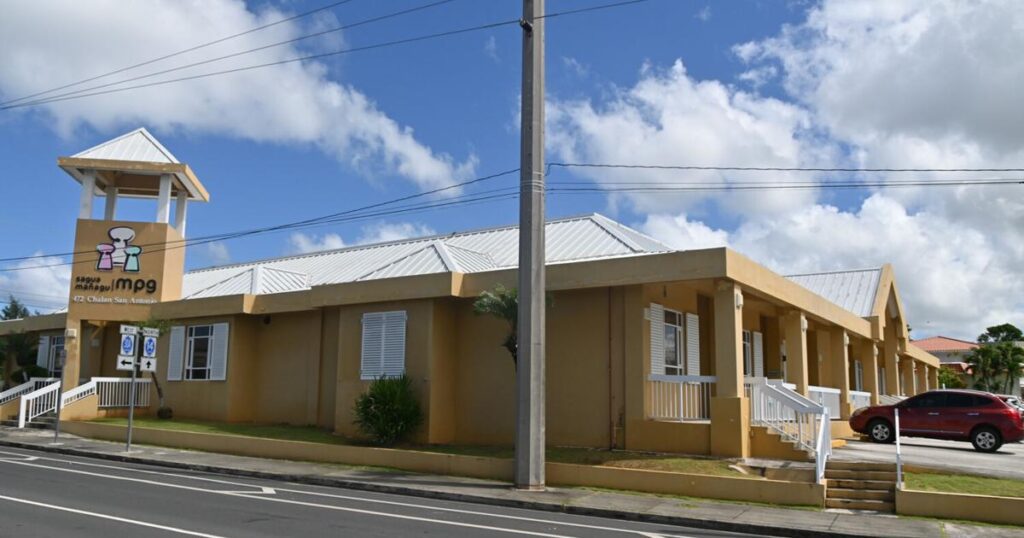Guam Faces Growing Women’s Health Care Crisis in 2024
Throughout 2024, health care professionals in Guam have voiced serious concerns regarding the deteriorating state of women’s health services on the island. From primary care clinics to hospital treatments, the situation is being described as an escalating crisis.
The scope of women’s health care encompasses vital services such as gynecological care, prenatal check-ups, labor and delivery, and postpartum support. A significant contributing factor to this crisis is the shortage of board-certified obstetricians and gynecologists (OBGYNs).
While Guam has yet to be officially designated as a maternity care desert, alarming developments such as the closure of the Sagua Managu Birthing Center and the anticipated shutdown of Marianas Physicians Group in February 2025, as OBGYNs retire, are raising red flags.
Local OBGYN, Dr. Thomas Shieh, alongside Family Practitioner, Dr. Hoa Nguyen, are alarmed by the trajectory of maternity care in Guam, citing that the situation for pregnant women and women’s health in general is more precarious today than it was two years ago when the crisis was first declared.
“Currently, we are facing unprecedented challenges for pregnant women and gynecology patients, particularly those at risk of cancer,” Dr. Nguyen remarked, emphasizing that the current state of affairs is even graver than during the COVID-19 pandemic in 2022.
Nguyen pointed out that one of the key reasons for Guam’s elevated maternal and fetal mortality rates is the lack of adequate prenatal care. “Many do not realize that this journey begins at conception. Prenatal care is paramount, especially for high-risk patients with conditions such as high blood pressure and diabetes,” he stated.
The Evolving Landscape of Women’s Health Care
Nguyen elaborated on how the landscape of women’s health care has shifted dramatically in the past two years, exacerbating the crisis. “In 2022, we had a greater number of obstetricians on the island. Currently, with Dr. Teresa Underwood leaving permanently and Dr. Annie Bordallo set to retire in March 2025, the community is left with just Dr. Tom Shieh as a primary OBGYN,” he explained.
With the dwindling number of OBGYNs, many women now struggle to secure essential health and prenatal services. Dr. Shieh, whose age is similar to that of Dr. Bordallo, has stopped accepting new patients to prioritize family time.
Shieh noted that the average age of OBGYNs on Guam exceeds 65, creating a pressing gap in available providers.
Community Response and Urgent Needs
The Women’s and Maternal Fetal Health Care crisis, particularly the shortage of OBGYNs, has not gone unnoticed. The Guam Memorial Hospital (GMH) and the Leon Guerrero-Tenorio administration have recognized the issue and are working on proactive measures to ensure adequate care for mothers and infants.
“Our family medicine practitioners are taking charge of maternal and child health services on Guam. These dedicated doctors, trained to deliver children, are addressing our community’s medical needs with remarkable expertise,” stated Governor Lou Leon Guerrero in November.
She further noted that family practitioners are playing a crucial role in filling the gaps in available services. However, Nguyen cautioned that family medicine practitioners may lack the specialized training to identify complications that an OBGYN would typically catch.
The crisis is compounded by concerns over potential pay disparities at GMH. In December, the absence of Dr. Jennifer Linden raised alarms regarding staffing. During her leave, GMH relied on one full-time OBGYN, a retired doctor, and another nearing retirement.
Dr. Shieh commented on the staffing situation, noting that although he has the privilege to deliver babies at GMH, he is neither an employee nor on-call for the hospital. He voiced dissatisfaction on social media after GMH declined his request for pay equity when they asked him to cover shifts.
“In the past, I covered shifts pro bono for the hospital,” Shieh told The Guam Daily Post. “It’s not about the money; it’s about the principle of fair treatment for board-certified OB-GYNs. Equality among medical staff is essential, and this situation exposes inefficiencies in how the government operates,” he asserted.
As of now, GMH has contracted one OBGYN at a rate of $4,800 per day to handle calls on an as-needed basis, typically once or twice a month, putting further strain on women’s health services.


